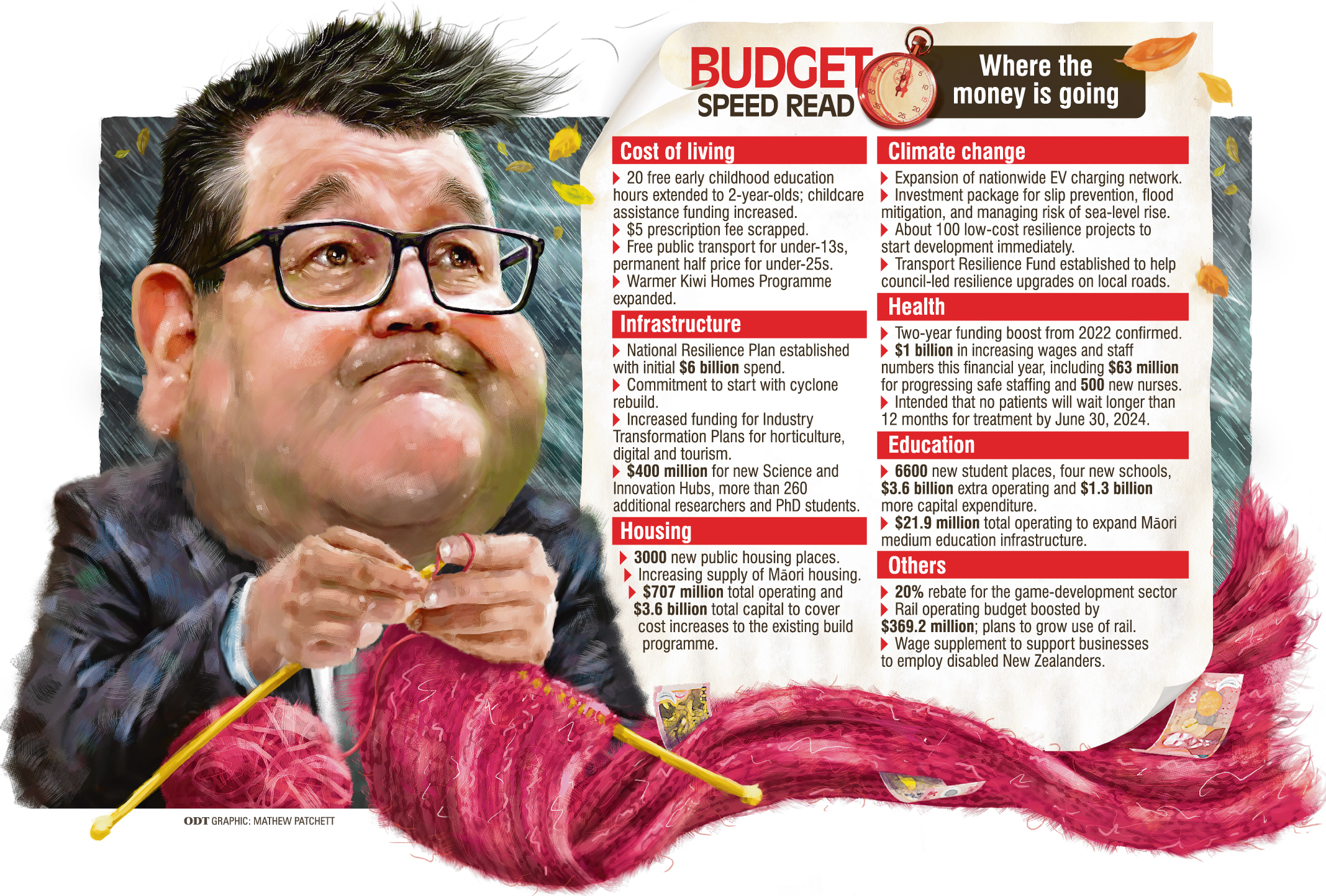Bland almost to the point of beige, Budget 2023 was one in which the Finance Minister stuck to his knitting, making few outstanding or exciting new spending pledges, nor making sweeping election year promises to entice voters to stick with the red team.
It was well foreshadowed that there would be little to get the pulse racing in the Budget, and this utilitarian, uninspiring document has been carefully calculated with October’s general election in mind.

Had Mr Robertson had a major spend-up with lashings of tax cuts on top, Labour felt voters would have seen through such naked bribery. Had they oversold what few blandishments there were in Budget 2023 Mr Robertson might have delivered a sequel to Michael Cullen’s much-derided "chewing gum Budget".
Instead we have a steady, stolid Budget which offers some crumbs of comfort to those struggling to meet the cost of living, having set aside the major spending for a rainy day — firstly to repair the damage wrought by Cyclone Gabrielle, then to salt away as part of a new national resilience plan.
Mr Robertson was between a rock and a hard place. Repeating the cost of living payments of 2022 or reheating fuel and public transport subsidies would have smacked of the Government having run out of new ideas, but getting more cash in their pockets for daily necessities is an urgent need for many households.
Scrapping prescription fees — just $5 a pop — does not sound like much, and it pre-supposes the patient has been able to get in to see their GP in the first place.
But poverty and illness walk hand in hand and people with one illness — particularly the elderly — will often have more debilitating conditions. This is a policy which should prove popular.

Public transport subsidies have been reinvented and not before time. The fuel excise reduction is about to expire and the likely fuel price hikes which will stem from that should make taking the bus a more attractive option.
There was little in this "bread and butter Budget" to make either of those pantry staples more affordable, but those cost of living initiatives may help a few more people to scrape by.
The biggest new initiative in the Budget was, again, one the Government had already promised, a more robust approach to infrastructure projects to make sure they do not wash away in the next weather bomb.
A hefty $6billion initial funding for a national resilience plan was pledged, although it was not entirely clear how much of this was money already allocated towards cyclone cleanup.
What was clever, however, was the decision to create a new infrastructure delivery agency — Rau Paenga — from the ashes of the Christchurch earthquake rebuild agency.
That body has been slow to reconstruct the city but one of its watchwords has been resilience and that is the catchcry of the Government’s infrastructure plan.
In an ideal world road, rail and bridges would not be being swept away. But assuming, as scientists assure us, that such disasters will become more regular events, will Rau Paenga ensure that New Zealand bounces back better?
Time will tell, but it is better to have at least given some more considered thought about what and where to build than the rushed shovel ready projects programme of Budgets past.
Some might have thought Gabrielle would have been the spur for new initiatives to combat climate change, instead already announced funding was reheated with a dash of seasoning.
Likewise, while there was some spending on core essentials such as education and health, it did not amount to much. The education spend, particularly in the tertiary sector, will be unlikely to meet the massive shortfalls of the besieged Te Pukenga or the beleaguered University of Otago.
And the health spend, while it sounds good, is in reality an extension of the record two year boost in funding announced in 2022.
Government spending does remain high, as the Opposition will loudly remind us, but Mr Robertson could have — and perhaps wanted to — have spent a great deal more.
But he did not, and so we did not get a Budget for the ages — rather a Budget for this age of austerity.
Whether voters regard his work as responsible economic stewardship or an irresponsible refusal to offer greater help to those in need, October’s election will tell us.











